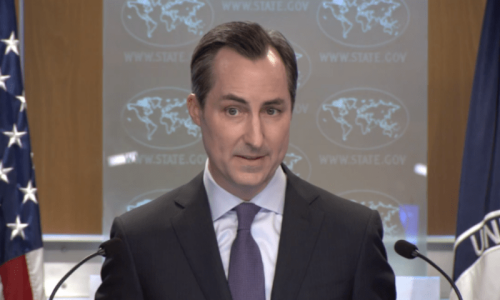POLICYMAKERS must be jumping with joy. At the close of the first quarter of FY25, the budget posted a consolidated surplus of Rs1.7tr — 1.4pc of GDP — after 24 years. However, their jubilation will be short-lived, since this surplus is an outcome of a one-off event: the unprecedented profits of Rs2.5tr made by the State Bank by lending money to commercial banks last year through its Open Market Operations at a record-high policy interest rate of 22pc to finance the budget. Another major factor that has helped convert the perennial deficit into surplus in the first quarter is a record government earning from the petroleum levy on transport fuels, which increased by 18pc from a year ago. With no cash coming from the SBP over the next three quarters of the present fiscal year, the surplus will gradually morph back into deficit in the coming months. Besides, the authorities struggling to pull off budgeted targets for tax collection and public spending, crucial to keep the deficit down within the targeted range, is not helping either.
Tax collection has actually fallen far short of the targeted revenue, and public expenditures have already exceeded the budgeted estimates. The fiscal operations report for the period July-September released the other day shows that taxes fell short of the target by Rs91bn. In fact, the four-month tax revenue collection shortfall soared to Rs190bn by the end of October. This is in spite of an enormous increase in tax rates and the imposition of new levies in the last budget. In a similar manner, expenditure rose by 13pc from last year. If these two variables continue to worsen, the budget deficit may even surpass the target of 5.9pc for the year, necessitating further cuts in the development expenditure. That said, the government is following the path of fiscal consolidation, producing a primary surplus — its current income less its current spending, excluding debt payments — of 0.4pc of GDP. Nevertheless, this fiscal consolidation has come at a huge cost to economic growth and jobs as the authorities are forced to cut the public-sector development budget to make up for their failure to boost tax collection. In other words, it will not be possible to sustainably control elevated fiscal deficits without compromising growth and development unless tax revenues are increased and wasteful public expenditure slashed.
Published in Dawn, November 3rd, 2024












































Dear visitor, the comments section is undergoing an overhaul and will return soon.